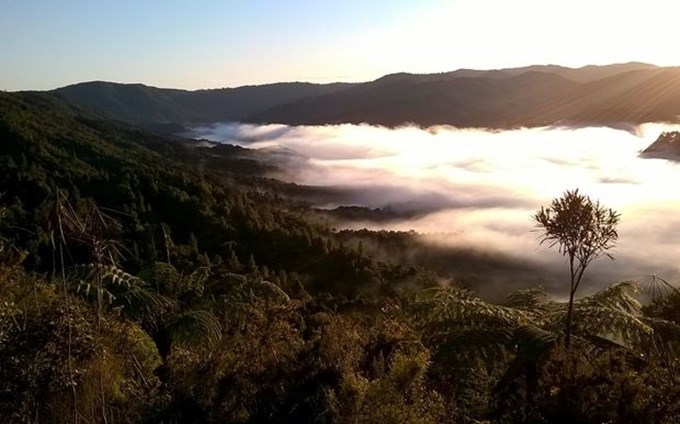Money from the targeted environmental rate has advanced projects within the Franklin Local Board area.
In the kauri dieback battle, Hunua Ranges tracks have been upgraded and hygiene stations added, the targeted rate having increased funding in the area by $7.6 million in 2018-19.
Franklin Local Board chair Angela Fulljames says few residents ever volunteer to pay more, but the idea of a targeted environmental rate received widespread support.
"The board has a well-cared-for natural environment as one of its five key principles, so anything that helps achieve that has to be a good thing."
More than 600 community groups and schools are being supported to achieve biodiversity outcomes as well, mainly with a focus on expanding action in high-ecological-value areas.
The rate means there is also another $2.2 million available for parks protection, with an aim of doubling protected areas of the highest ecological value in regional and local parks.
Contracts for park ecological restoration services have been agreed, incorporating more pest plant and animal control, including in the Hunua Ranges where pig control is a concern.
The Project Hunua pest control operation was completed last year, the targeted rate enabling staff to expand the treatment area in the park and on privately-owned land.
In biosecurity, the rate means there is an additional $1.8 million to control pest plants and animals in priority ecosystems, and that will mean increased possum, deer and goat control in the Hunua Ranges and on the Awhitu Peninsula.
"Most of Auckland lives in an urban environment but Franklin is a vast geographic area that contains significant ecological sites. It’s up to us all to protect them so we can pass them on to future generations in good health," Mrs Fulljames says.
"We acknowledge the volunteer groups who are working on restoring our native species and improving our waterways and bush too. They are integral to the progress we are making."
Marine ecology will benefit too, with significant increases in budget allowing several areas of work, including in protecting threatened marine ecosystems.


